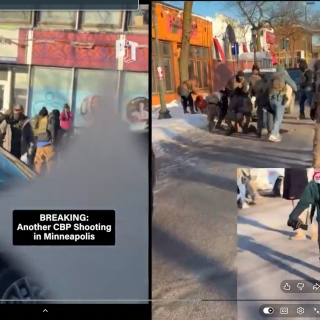January 14, 2018 // Columbus City Council voted to allow individual campaign donors to give them, and other city office holder candidates $12,707.79 per year. In the last agenda item of the night, on Tuesday 14 January, the city established one of the highest municipal caps in the state. In comparison, candidates in Cleveland can only accept $5,000, and in Cincinnati $1,100.
All four citizen comments regarding the ordinance at the council meeting opposed the high cap, but members of Council spoke glowingly of the ordinance prior to its approval. Michael Stinziano, President ProTempore, called the ordinance "a good first step." Council President Shannon G Hardin said, "For the first time we are putting a cap on campaign contributions in the city...This legislation is a good, historic first step."
He listed the benefits including encouraging small contributions by allowing individual contributors to claim up to $50 in city tax credit, and provisions that targeted "dark money"--campaign contributions where the source is not disclosed publicly, often channeled through a social welfare nonprofit such as a 501(c)(4). To manage the spending cap, and ensure new dark money laws are compiled to, the legislation created a new Campaign Finance Administrator position within the City Clerk's office to review campaign finance reports, work with the City Attorney on any related complaints, and oversee "citizen petitions, referendums, recalls and all matters requiring petitioning the City" according to the job description which was posted to the city jobs website.
Nicole Butler, from Yes We Can, who spoke against the ordinance, said Columbus "was the biggest city in the country without campaign contribution limits." She noted, "Some people say we didn't have any cap before so this is better than nothing, but I don't think it is. For example, a 100 mile an hour speed limit is worse than no speed limit since it encourages people to think that 100 miles an hour is OK." The spending limit allows an individual donor to dump nearly half a million dollars into city government in a four year election cycle, Butler pointed out, since the cap allows individuals to give nearly $13,000 to each municipal candidate per year including 7 council members, the mayor, city auditor, and city attorney.
Columbus Mayor Andrew Ginther announced the ordinance in a press release dated November 28th and said, "The City chose to implement contribution limits following the September 18, 2018, U.S. Supreme Court ruling that allows disclosure of dark money being used to influence elections." In that case, Crossroads GPS V Citizens for Responsibility and Ethics in Washington (CREW), Et Al., the Supreme Court refused to block a trial court's ruling in CREW V. Federal Election Commission (FEC) and Crossroads GPS that had ruled in favor of CREW who had sued the FEC to challenge the dismissal of enforcement action against Crossroads GPS, a 501(c)(4). CREW argued a FEC regulation enacted in 1979, and gaining new significance after the Supreme Court's Citizen's United decision, was too narrow, and didn't match statutory provisions. The FEC regulation together with Citizen's United which classified corporate campaign contributions as free speech, allowed nondisclosure of unlimited individual and corporate contributions as long as the contribution was not earmarked for a specific expenditure. Since the September 18th ruling, some nonprofits placing political adds must disclose their contributors.
After advocating for city campaign spending limits for over a year, Butler said, "The Mayor’s office came out with this [Columbus city] proposal last October and it was introduced very fast. They called us in to tell us what they were going to do. They weren't asking for feedback. Council Member Michael Stinziano told me the council members were not involved in drafting it. Brian Clark, [the Chief Policy Advisory] from the Mayor’s office drafted it and gave council 11 days to approve it." Citizen advocacy for a lower spending limit delayed its passage by several weeks, but didn't stop or modify the ordinance. Robin Davis, Director of Media Relations of the mayor's office said in an emailed statement, "The legislation came out of discussions with City Attorney Zach Klein, City Council President Shannon Hardin and Mayor Ginther. It was crafted by Mayor Ginther’s office."
Joe Motil, Columbus City Council hopeful and safety construction manager, also spoke against the high spending cap at the council meeting. Without good campaign finance laws, Motil said, we will see more cases like the 2007 city purchase of traffic speed cameras from Redflex that resulted in the conviction of political lobbyist John Raphael sentenced to 15 months in prison for extortion. Mayor Ginther, who was a city council member at the time of the contract signing, admitted he requested a donation from Redflex, and asked Raphael for help in getting the donation from the company. Redflex CEO at the time, Karen Finley, said she gave the Democratic Party $20,000 to give to Ginther to secure the contract, and the contract was awarded to them. But Ginther claimed in the bribery investigation he did not know whether a $21,000 donation he received from the Democratic Party included the money he had solicited from Redflex.



